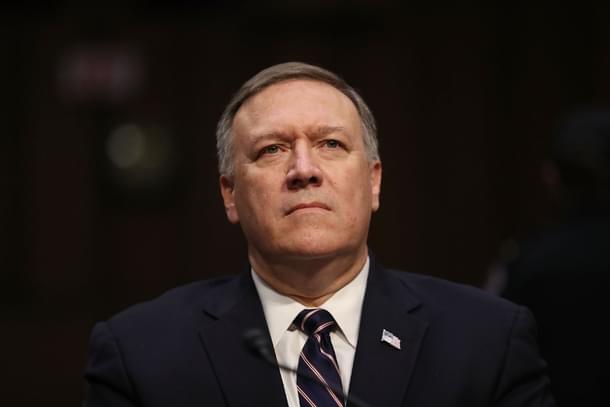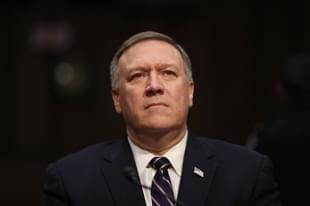Insta
US Moving Troops From Europe To Counter Chinese Threat To India And Southeast Asia: Mike Pompeo
Swarajya Staff
Jun 26, 2020, 12:04 PM | Updated 12:04 PM IST
Save & read from anywhere!
Bookmark stories for easy access on any device or the Swarajya app.


In a major development, US secretary of state Mike Pompeo said on Thursday (25 June) that the decision to reduce the troops in Europe and deploy them in several other places was in response to the Chinese threat to India and Southeast Asian nations, reports Times of India.
The statement pitches the US as a factor in the India-China military face-off in the Ladakh region.
Speaking at the Brussels forum, Pompeo said that the decision to withdraw troops from Germany, announced by President Trump recently, was a well thought-out strategy to move them to other places.
There'll be fewer US resources at certain places, they'll be at other places as there's threat from Chinese Communist Party to India, Vietnam, Indonesia, Malaysia, South China Sea. We'll make sure we are postured appropriately to counter People's Liberation Army: US Secy of State pic.twitter.com/2R0fdpu6Su
— ANI (@ANI) June 25, 2020
He further added that the aggressive stance of the Chinese Communist Party was a threat to India and other countries like Vietnam, Malaysia, Indonesia, Philippines and the South China Sea.
“We are going to make sure we are postured appropriately to counter the PLA. We think that is the challenge of our time and we are going to make sure we have resources in place to do that,” he said.
Citing threats from Chinese communist party to India & South East Asia, US will be "postured appropriately" & that is why reducing troops in Europe: US Secretary of state Mike Pompeo pic.twitter.com/HUE8PPqwSP
— Sidhant Sibal (@sidhant) June 25, 2020
Citing the list of aggressive Chinese actions, including the bloody confrontation with India and its actions in South China Sea, Pompeo announced that the US and the European Union would start a dialogue on China and the challenges it poses.
The dialogue aims to develop a common understanding of the threats posed by China along with “a collective data set” on China’s actions so the two could take action together.





